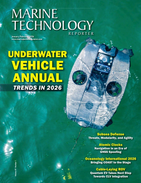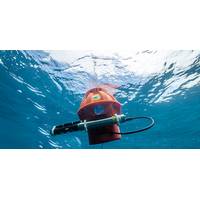
Scripps Awarded $15 Million for Environmental Surveys
Scripps Institution of Oceanography at the University of California San Diego has received a $15 million grant from the Fund for Science and Technology (FFST) to expand observational capabilities into parts of the ocean where data has historically been sparse or non-existent.FFST, a new private foundation funded by the estate of Microsoft co-founder Paul G. Allen, launched in 2025 with a commitment to invest at least $500 million over four years to propel transformative science and technology for people and the planet.The grant, the largest of its kind since Scripps became part of UC San Diego in 1960
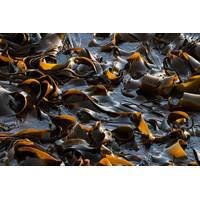
The Fate of Macroalgae and Why it Matters
Macroalgae, or seaweeds (including kelp), are highly productive coastal habitats capable of absorbing significant quantities of atmospheric carbon dioxide. Previous studies have estimated that globally, 4–44 teragrams (1Tg = one million metric tons) per year of macroalgal-derived carbon may reach depths of 200m, where it may be sequestered for at least 100 years.TheFebruary issue of Marine Technology Reporter magazine includes a feature on the fate of macroalgae in southwest Greenland. The study team, co-led by the Leibniz Institute for Baltic Sea Research Warnemünde and Helmholtz-Zentrum

CLS Group Strengthens Oceanography Capabilities with Akrocean Acquisition
and monitoring solutions, announced that it has entered into exclusive negotiations with Valemo and Geps Innov, shareholders of Akrocean, a specialist in turnkey ocean measurement services.This transaction forms part of CLS’ growth strategy aimed at strengthening its capabilities in operational oceanography and marine renewable energy. CLS supports offshore activities by combining metocean measurements, floating LiDAR solutions, and advanced underwater acoustics to secure offshore operations, optimize energy projects, and ensure environmental performance. The acquisition will enable CLS to offer

Taking Quantum Logic to the Edge
applicable to existing compute technologies.He and his team therefore turned their attention to using quantum logic. “We reframed the math into our own solvers that can solve massive problems on non-classical computer technology. We are now applying that to different applications, including oceanography and maritime security. We can bring together the best of breed sensors, whether they are quantum or not, and detect things that weren’t previously detectable – in a time that matters: real-time.”By non-classical computer technology, Turner means technologies such as graphics
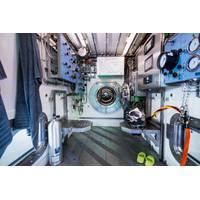
The Rise of the Aquanaut
The feeling of awe and planetary connection experienced by astronauts observing Earth from low space orbit is known as the “overview effect,” a term coined by Frank White, the author of numerous books on space exploration and science. Now researchers from Northeastern University have documented a similar cognitive shift among aquanauts, people who live and work under the sea. They call it the “underview effect.”Sharing that sense of wonder and kinship with nature with the public could be key to helping understand and conserve the ocean environment, according to the research
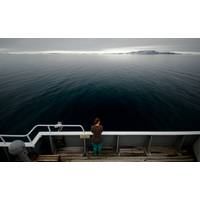
AquaTitans Joins Scottish Research Scheme
Subsea engineering company and ocean innovator AquaTitans is the latest business to sign up to the Scottish Association for Marine Science’s (SAMS) Ocean Changemakers scheme.The corporate membership scheme, which has a growing list of companies representing aquaculture to utilities, supports SAMS, as an ocean research charity, in advancing its understanding of marine environments.This newest sign-up reflects AquaTitans’ commitment to making a positive impact to sustainable oceans, by supporting a charity that is both geographically close and aligned with its own vision that understanding
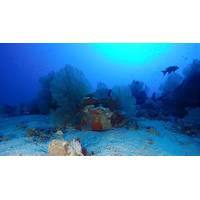
New Project to Assess Resilience of Mesophotic Coral Reefs
employ a number of methods to assess their vulnerability to climate change.In addition to assessing the threats they face, the project will also seek to inform ways the reefs can be protected now and in the future.The project starts in February 2026, and is being led by experts in marine biology and oceanography from the University of Plymouth, with a core team also including experts in coral reef biodiversity from Imperial College London and specialists in numerical modelling at Plymouth Marine Laboratory (PML). They are being supported by a grant of £3.7million from the Natural Environment Research
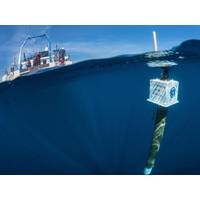
EU Seeks Feedback on Ocean Observation Initiative
The European Commission has launched a call for evidence to shape the European Ocean Observation Initiative, one of the cornerstones of the European Ocean Pact.The initiative will improve access to actionable marine knowledge for everyone who relies on the ocean and aims to make Europe a global leader in ocean observation and the development of related technologies. The call for evidence will be open until February 27, 2026, with the Commission seeking a wide range of contributions from stakeholders, experts and citizens. The feedback collected will feed into the development of the Ocean

Entanglement Acquires Applied Ocean Sciences
Applied Ocean Sciences will operate as an Entanglement company, strengthening the firm’s portfolio of applied intelligence platforms across environmental, maritime, and dual-use domains.Applied Ocean Sciences’ work spans environmental science and conservation, atmospheric science, physical oceanography, biological oceanography, and maritime and defense applications. These capabilities support complex sensing, modeling, and decision-making challenges across ocean, atmosphere, and increasingly space-enabled Earth observation systems.AOS has a long history of work with government agencies and research

 February 2026
February 2026


